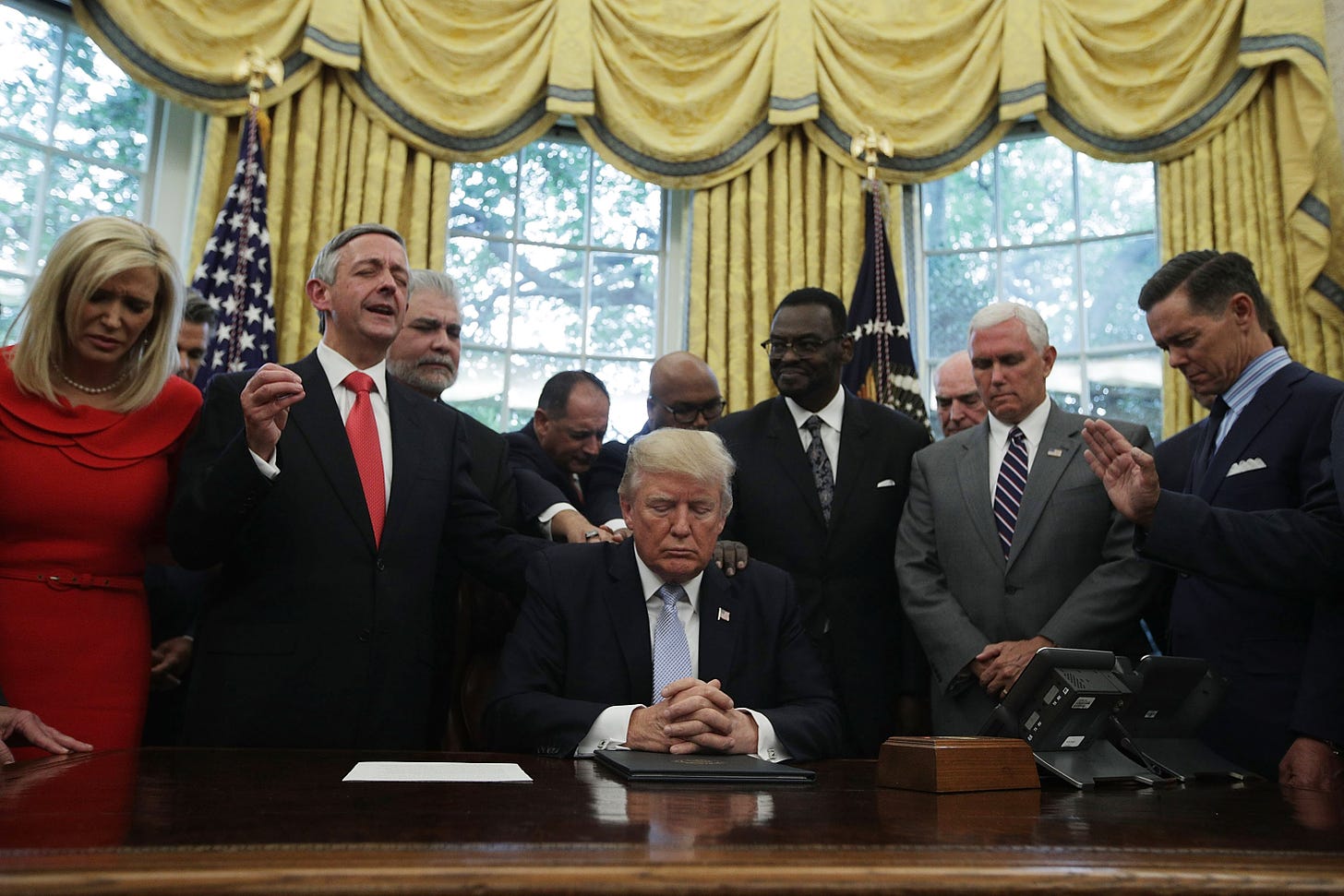It's Not Enough to Pay Lip Service to Religious Liberty
Mike Pence has been a sincere champion for persecuted minorities around the globe. His boss, on the other hand …
It’s been more than 20 years since President Bill Clinton signed the International Religious Freedom Act into law. In the face of rampant violations of religious liberty around the globe, the act sought not just to punish intolerant governments but to actively promote religious freedom This principle was clear then but is unfortunately less clear now.
Take, for example,Vice President Mike Pence’s commencement address at Liberty University. He lamented what he called an “assault on freedom of religion.” He warned graduates that they will “be asked not just to tolerate things that violate their faith, but to endorse them.”
This irony may be lost on Pence, but it is not on us. From then-candidate Trump’s proposed ban on all Muslims entering the country after the 2015 San Bernardino terrorist attack to his gratuitous belittlement of the Khan family it is difficult if not comical to portray the president as a “religious champion.”
Beyond being antithetical to American values, these comments have done a lot of damage electorally. In 2000, President Bush won about 40 percent of the Muslim vote , a turnout so significant that Grover Norquist boasted that “George W. Bush was elected President of the United States of America because of the Muslim vote.” Trump, on the other hand, won just 8 percent of the Muslim vote. That decline might not be entirely his fault, but he’s opting to exacerbate it rather than address it.
In increasingly purple states like Texas, conservative politicians cannot afford to push away voters; yet, just five months ago, the Tarrant County GOP tried to remove vice chairman Shahid Shafi for the nakedly bigoted reason that he’s Muslim. The vote failed, but not before highlighting the narrow-mindedness of the vote’s organizers..
Consider, too, Michigan and how important it is to both parties in 2020. Dearborn is home to the largest Muslim community in the U.S. How many of them will be motivated to vote Republican after another year and a half of President Trump’s diatribes? Will it even be 8 percent?
If President Trump wants to address these dismal numbers, he should take a cue from his administration’s foreign policy veterans and step up the fight for religious liberty abroad. In North Korea, Christians are sent to political prison camps for crimes such as owning a Bible. In China’s Xinjiang Province, the Uighur Muslims have been living a nightmare. For years, their mosques have been bulldozed, and their culture destroyed. Today, it’s believed that 1 million Uighurs are in re-education camps.
If President Trump insists on engaging with Kim Jong-un, he should condemn the regime’s history of religious intolerance. Moreover, he should not let the most recent trade spat crowd out other salient concerns in negotiations with President Xi—namely, China’s shameful record on human rights. Trump would do well to remind the Chinese that America places a higher value on the right to live freely than it does on GDP per capita. Doing so would not only strike several blows for liberal democracy abroad, but would also show that the conservative commitment to religious liberty is one of equality, not bigotry.
Renewing this commitment to religious freedom by fighting for Uighurs and other religious minorities would also be politically smart. Let’s be clear: Electoral incentives should not be President Trump’s primary motivator here. Fighting for and protecting religious liberty abroad is, has been, and will always be fundamental to American foreign policy. That said, if President Trump were to demonstrate a commitment to persecuted religious minorities, he could draw newfound domestic support from religious groups.
The vice president has historically been on the right side of religious freedom. His speech at Liberty included references to the Christchurch mosque shooting. He has spoken out about the persecution of Myanmar’s Rohingya Muslims. He has warned against anti-Semitism in the United States and elsewhere. Unfortunately, the man for whom Pence works can’t even see the practical and electoral benefits of standing up for religious freedom. It’s hard to believe he would ever understand the moral obligation.



